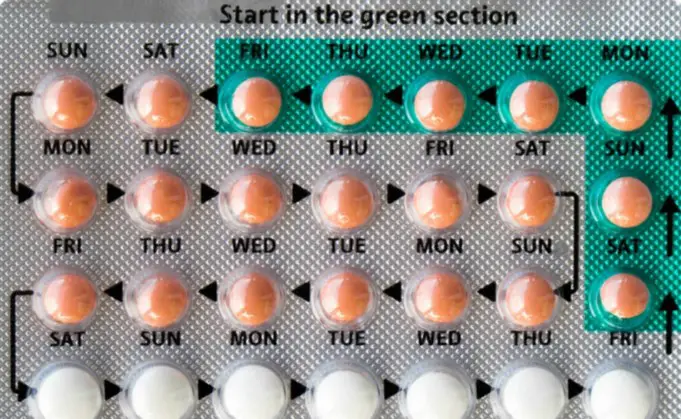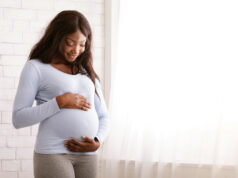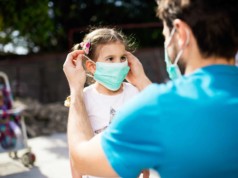Contraceptive pills are medicines used to prevent pregnancy. They are also called birth control. They are made using one or more synthetic female hormones.
Contraceptive pills are of two main types and those contraceptive pills containing progestin are called progestin-only contraceptives (POPs) while those containing both progestin and estrogen are called combined oral contraceptives (COCs).
POPs prevent pregnancy by thinning the endometrium and by changing the viscosity of mucus, they also prevent ovulation in some women, although this is not consistent.
POPs prevent sperm from entering the uterus by thickening the mucus in the cervix, they must be taken 3 hourly every day. COCs prevent pregnancy by inhibiting the process of ovulation and they also alter the lining of the uterus making it difficult to support a fertilized egg.
They also change the stickiness (viscosity) of the mucus in the cervix, this makes it hard for sperm to travel to the uterus. Some COCs contraceptives can contain mineral supplements such as folic acid and iron.
These drugs are taken within a few days after having unprotected sex to prevent the implantation of the fertilized egg. Another set of contraceptive pills we will be looking at mainly is the Emergency hormonal contraception, this is also called the “morning after pill”.
It is used to prevent an unwanted pregnancy after unprotected sex, sexual assault, or contraceptive failure. These pills work best if taken within 72 hours of having sex. They are also moderately effective if used within 5 days of sexual intercourse.
Uses of Contraceptive Pills
The main aim of contraceptive pills is to prevent unwanted pregnancy in women. Other uses are:
- To treat menstrual disorders and irregularities
- To reduce pain and cramping during menstruation
- To treat reproductive problems like polycystic ovary syndrome (PCOS), premenstrual dysphoric disorder (PMDD) or premenstrual syndrome.
Hormonal contraceptives which are available in the form of pills, also known as oral contraceptives, vaginal rings, patches, intrauterine device, implants, and injections have more side effects than non-hormonal contraceptives such as condoms, sponges, diaphragms, cervical caps, and spermicides.
Are Contraceptives Safe?
Contraceptives are quite safe but not that safe, they have undesirable side effects when used regularly. It raises the risks of blood clots, strokes, severe headaches, uncontrolled high blood pressure, liver disease, heart disease, and undiagnosed vaginal bleeding.
It is also not suitable for women with certain types of cancer, it is not safe for these women rather non-hormonal method of contraception are safer and suitable for women with cancer.
Side Effects of Contraceptive Pills
Hormonal contraceptives produce undesirable side effects like:
- Breakouts and acne
- Vomiting
- Changes in appetite
- Vaginal disturbances like burning, itching, irritation, swelling, redness, and discharge.
- Discharge from the breast
- Breast enlargement and tenderness
- Weight loss or weight gain
- Changes in menstrual flow, missed period, painful period, spotting between period, and irregular period.
- Bloating and stomach cramps
- Diarrhea or constipation
- Black or brown patches on your skin or changes in the color of your skin
- Inflammation of the gums known as gingivitis
- Nausea
- Growth of hair in usual places
- Moodiness
Emergency Hormonal Contraception
Emergency contraception is also known as postcoital contraception, they are used by women after unprotected sex or when a birth control pill or method fails.
This method is not to be used as a regular method of birth control, rather, it is reserved for specific situations and emergencies such as rape, missing 2 or more birth control pills during a monthly cycle, a slip off during sex, or broken condom.
This treatment is used to control pregnancy and not to terminate it or induce abortion. They work by delaying ovulation. There are two main types of emergency contraception.
They are the pills and the IUD. You can get most of these drugs without a doctor’s prescription while some can’t be gotten without a prescription.
Birth control pills can also be used as emergency contraception and you have to take more than one pill at a time. This works but it is less effective when compared to normal emergency contraception pills and they cause nausea. You need a doctor’s prescription to get birth control pills.
Common types of emergency contraception pills are levonorgestrel and ulipristal. Levonorgestrel can be gotten without a doctor’s prescription while ulipristal can only be gotten with a doctor’s prescription.
Ulipristal is a non-hormonal pill, it works by blocking the actions of key hormones responsible for conception.
How Emergency Contraceptive Pills Works?
Levonorgestrel works by temporarily blocking the eggs from being released thus preventing fertilization. It also stops a fertilized egg from being implanted in the womb.
Levonorgestrel one dose is a pill and its effectiveness depends on how soon the pill was taken. It should be taken as soon as possible, especially within 72 hours of having unprotected sex.
When taken properly, it reduces the chances of pregnancy by 90%. Ulipristal is also taken as a pill in one dose and it is taken up to 120 hours after unprotected sex.
Levonorgestrel is not effective in obese women, rather an IUD is the best method of birth control in women who are overweight or obese. Emergency contraceptive pills do not protect against sexually transmitted diseases.
Side Effects of Emergency Contraceptive Pills
Common side effects of hormonal contraceptive pills are:
- Fatigue
- Nausea
- Headaches
- Menstrual changes
- Abdominal pain
Some anti-nausea medicine can be prescribed for you by your doctor to reduce nausea and vomiting.
Severe Side Effects of Hormonal Contraceptives
Some adverse side effects have been associated with the use of hormonal contraceptives and some of them are:
- Severe stomach pain
- Severe headache
- Swellings in the leg or leg pain
- Increased risks of heart attack, blood clots, and strokes
- Blurred visions
- Chest pain












